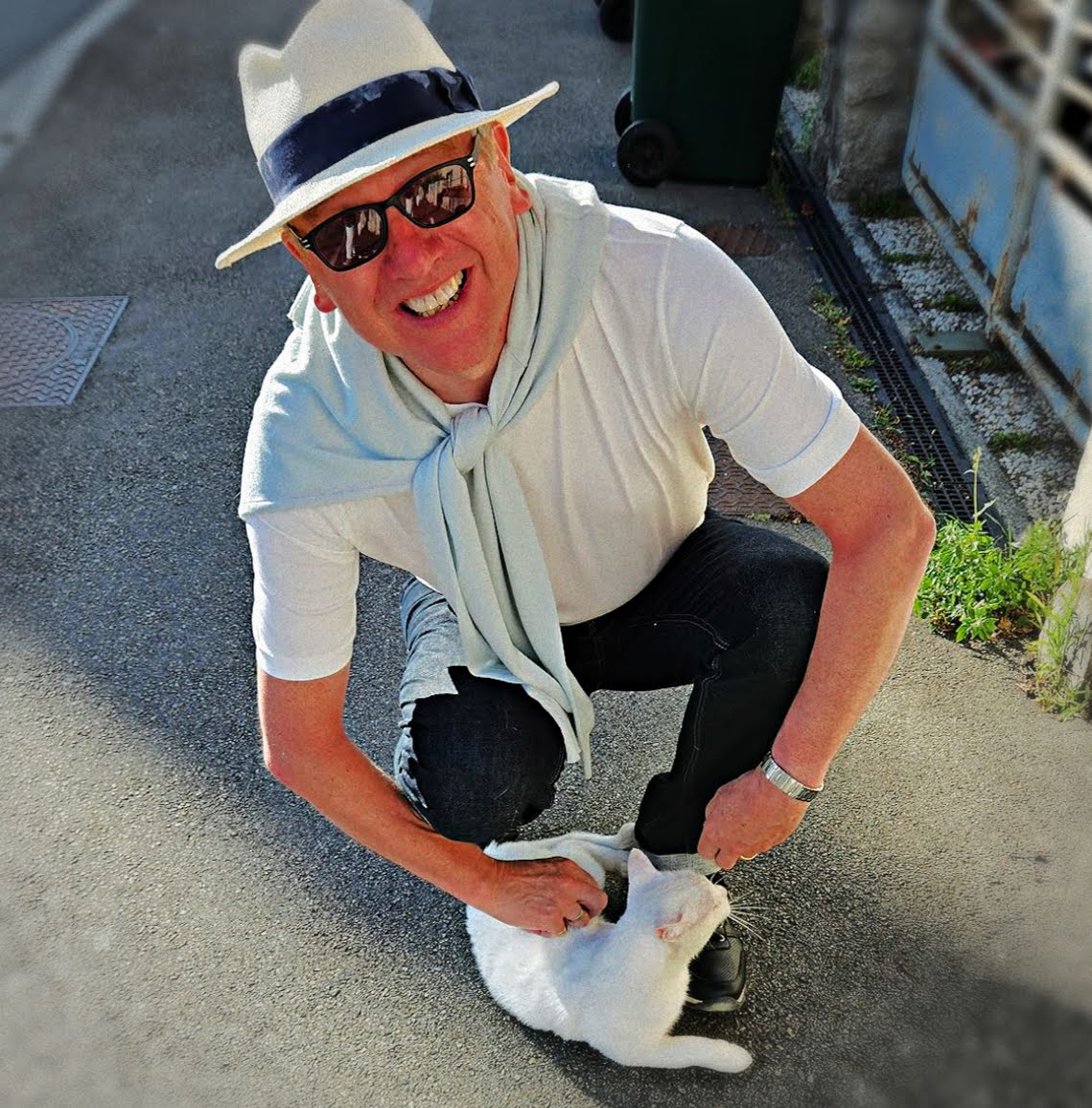Rutger Hauer, Golden Earring, Peter Houtman - thirty goals for Feyenoord in the ‘82-’83 Eredivisie season. All big in Holland. Granted, it possibly doesn’t resonate with the same Eastern exoticism as being ‘big in Japan’; or enjoy the traffic-stopping, dollar-counting affirmation as being ‘big in the States’. But a band has to start somewhere beyond their native shores, and if that means The Netherlands for our band The Box, then paint me bright orange and call me Roger Rembrandt.
Andy MacDonald, our tireless label boss at Go! Discs, has secured a licence deal for our debut album with leading Dutch independent label Roadrunner Records, which is also home to UK alternative bands like The Au Pairs and Eyeless In Gaza, as well as the new wave of heavy metal bands like Demon, Witchfynde and Metallica. Only established two years ago, Roadrunner has money available for marketing and proper distribution in Holland, Belgium and Luxembourg, which I soon learn is known as Benelux in music business speak.
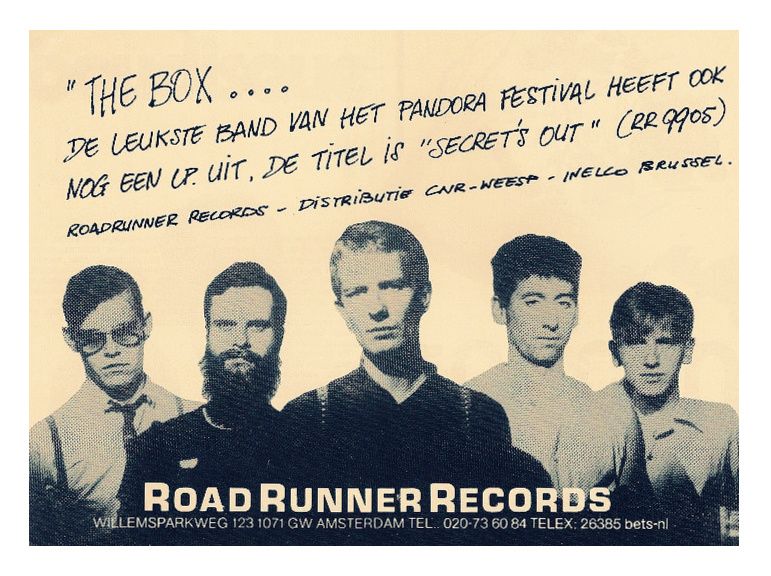
The thrill of seeing our album displayed in the window of Hemmes Grammofoonplaten in Groningen, so many miles from Sheffield, on the continent no less, is palpable. Now we’re getting somewhere.
Following a well-received mini-tour last year, and to coincide with the Dutch album release, The Box are back on tour in The Netherlands. The jewel in the crown gig is an appearance at the first Pandora’s Music Box festival in Rotterdam.
There are six of us in the hired Luton van, singer Pete, guitarist Paul, sax man Charlie and Terry the bass player. Plus me and Mark Estdale, who is the sound-engineer/driver/tour manager. Depending on the time of day and how much time we’ve spent together, life on the road with The Box veers somewhere between some classicised, devil-may-care barnstorm previously etched out by The Clash’s ‘Last Gang in Town’, and a more prosaic, Northern-informed sensibility that squats midway between a working mens’ club trip to Cleethorpes and a football fans away day jaunt down south. We sing daft, ribald songs. Popular hits by Dion, Duran Duran, Elton John, Bonnie Tyler, Dionne Warwick and others are lustily rewritten with obscene, unrepeatable lyrics that would make Derek & Clive blush.
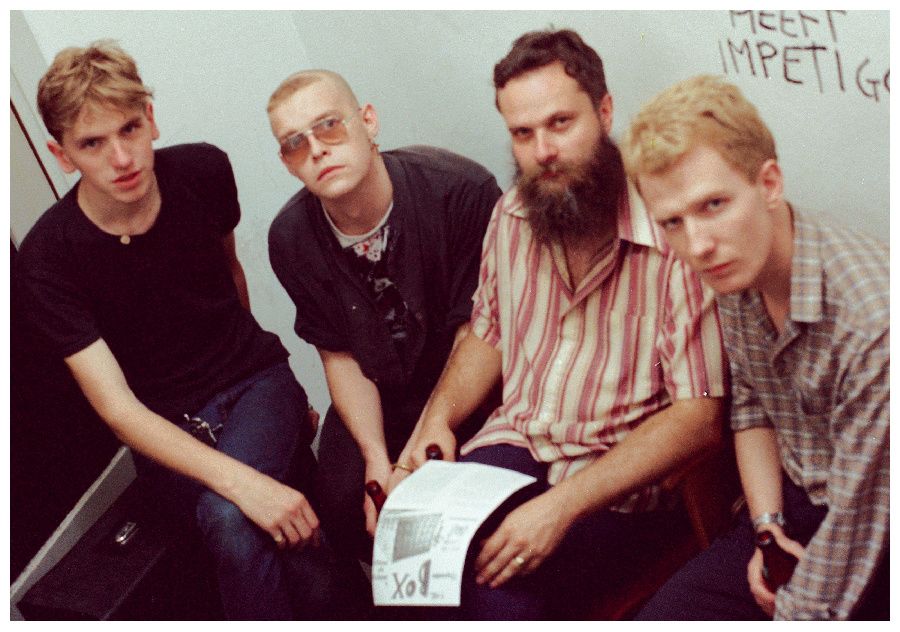
We discover a chain of sex shops called Christine Le Duc. Back at home, none of us would ever be caught dead going into the infamous Sven Books on Sheffield’s Division Street. Here, Pete emerges with a phallus so large it could double up as both pagan fertility symbol and draught excluder. Other times, it’s the trivial mundanities that get picked over, such as when Charlie, fresh from watching the BBC rabies’ thriller ‘The Mad Death’ with Dutch subtitles, informs the van that hunder poop is Dutch for dog shit.
Thank goodness then for the trip to the high class De Doelen venue in Rotterdam, and an opportunity to get our minds out of the sewers and onto a higher intellectual plane, at least for a few hours. A stunning, modernist hymn to the combined wonders of glass, concrete and marble, De Doelen was opened in the mid-Sixties - as the final part of the city's architectural rebirth following the destruction of old Rotterdam during World War II. Inside it feels huge and airy. The main concert room holds 2,000 people, and there are two equally well-appointed, smaller halls. I decide it’s like a really exclusive airport lounge. I can picture Liz Taylor and Richard Burton walking purposefully through the long foyer, as an explosion of popping flashbulbs retreat ahead of them.
Given the salubrious surroundings, it’s no surprise to discover that the concert hall usually hosts the likes of Mike Oldfield, Dire Straits and Elton John. Music for people who are likely to be excited by this shiny new compact disc format we’ve seen on ‘Tomorrow’s World’.
Inspired by the UK’s Futurama festivals, ‘Pandora’s Music Box ‘83’ is a two-day, indoor alternative music gathering. It’s an audacious move by the concert promoters Mojo, to put a load of scruffy post-punk bands, their attending retinue and fans in a space like this. It’s at the other end of the scale compared to Futurama’s base, the Queens Hall in Leeds - a former tram station with basic sanitary facilities that would make Thomas Crapper himself blanch.
Also, unlike the UK, the fans here are as smart as the venue. Everyone, boys and girls alike, looks like they’ve been styled from the pages of i-D and The Face. We’ve noted on our travels that, like Sheffield, there are C & A clothing stores in all the main towns here. Perhaps their secret Dutch range is Chic & Affluent, as opposed to the Cheap & Awful stuff we see at home?
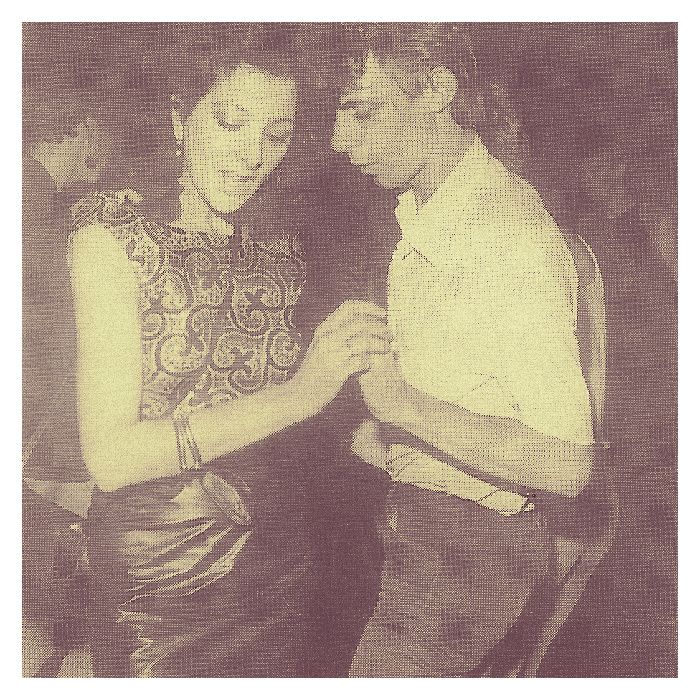
On arrival, and much to my surprise, we find that the festival’s Day One headliners, Siouxsie and The Banshees, are actually going on first at 9pm. Our slot, closing out the night in the smaller second hall, is at 3am tomorrow morning. My first thought is, How am I going to stay awake until then? Compared to the pioneering, wide-ranging chemical research of DVA, The Box’s vices are all-together more down-to-earth; we like booze and the occasional spliff. We’ve only been here half-an-hour and I’m already thinking about where I can find a quiet place for a nap. Better go watch some bands then.
Coincidentally, it’s almost three years to the day since I last saw Siouxsie & The Banshees, when they headlined Futurama 2 in Leeds in September 1980. Since then, the band have managed to walk the tightrope between commercial success and artistic credibility with some aplomb. They had hit singles, sold loads of albums and toured all over the world. With the exception of The Clash, they are arguably the most internationally successful of the bands who emerged from the UK punk scene in 1976. They are now perceived to be part of the established musical firmament, with familiar classic rock music tropes such as their own label imprint, ‘Wonderland’.
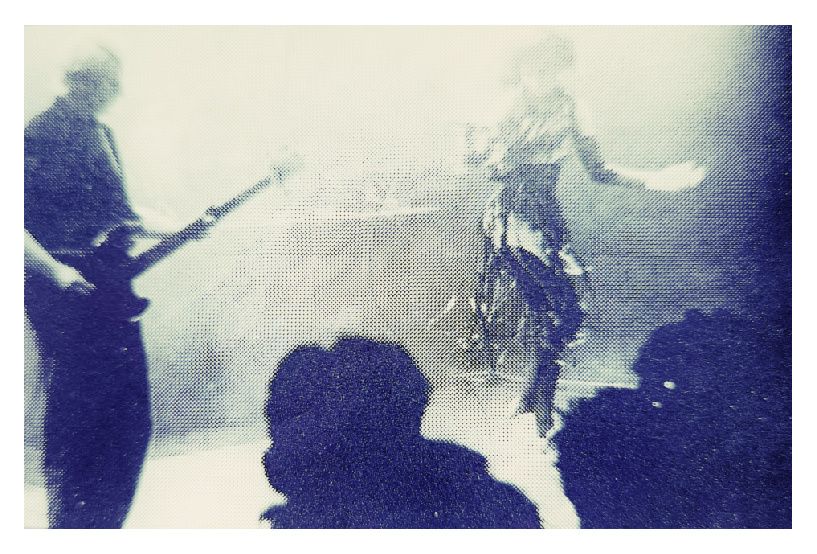
Plus boutique side projects and, on the horizon, a live double album set to be recorded at the Royal Albert Hall. Yet despite this, they have managed to cloak themselves in enough mystery and subterfuge to effectively become an exoplanet, one parsec away from the prevailing pop solar system.
Banshees’ guitarist John McGeoch departed last year, and his place has been taken by Robert Smith of The Cure. The second time he has come off the bench to play for The Banshees, the first being back in 1979. Smith is good friends with the Banshee’s co-founder and bass player Severin; they have just collaborated together as The Glove, and released an album called ‘Blue Sunshine’ on the aforementioned Wonderland label. Having emerged squinting into the milky light on the other side of the murky, fogbound dread of The Cure’s ‘Pornography’ album, Smith looks happy to be on stage tonight in Rotterdam. Relaxed to have someone else be centre-stage for a change, having fun playing some cracking songs with friends. Early on they play a cover version of The Beatles’ ‘Dear Prudence’. This, I note to anyone who’ll listen, is the second song from ‘The White Album’ they’ve taken on. ‘Helter Skelter’ being the first. Pleased with this bit of trivia, I smile and look forward to seeing them again in 1987 and what promises to be an interesting take on ‘Rocky Racoon’.
This is all a bit polite for bandmate Pete, and he goes off in search of something more abrasive in the shape of German post-punk band Die Haut, who have Birthday Party singer Nick Cave guesting with them tonight. For me, any bus that is being driven by one of my favourite drummers, Budgie, is worth staying onboard with. A revelation when I saw them in Leeds three years ago, his impeccable timing and sheer bloody clout behind the kit remains a joy to watch. In ‘Spellbound’, cued by Siouxsie’s exhortation to “Take them by the legs and throw them down the stairs”, his rattling tom-tom bombardment is as thrilling as the record. Siouxsie herself looks stunning, in a high bodice with what looks like a belt of many, many strips of fine leather which reach down to her calves. They jerk and leap like electric eels as she dances, sometimes a Mata Hari-like sideways shimmy, other times trotting on what might be, for all I know, an invisible hobby horse.
There’s always predictable stuff in the music press about her being an aloof ice maiden. But I reckon she, and indeed Severin, are skilled shadow makers. They know their milieu, which you could say sits broadly in between Roald Dahl’s ‘Tales Of The Unexpected’ and Rod Serling’s ‘The Twilight Zone’, with a generous side portion of Edgar Allen Poe.
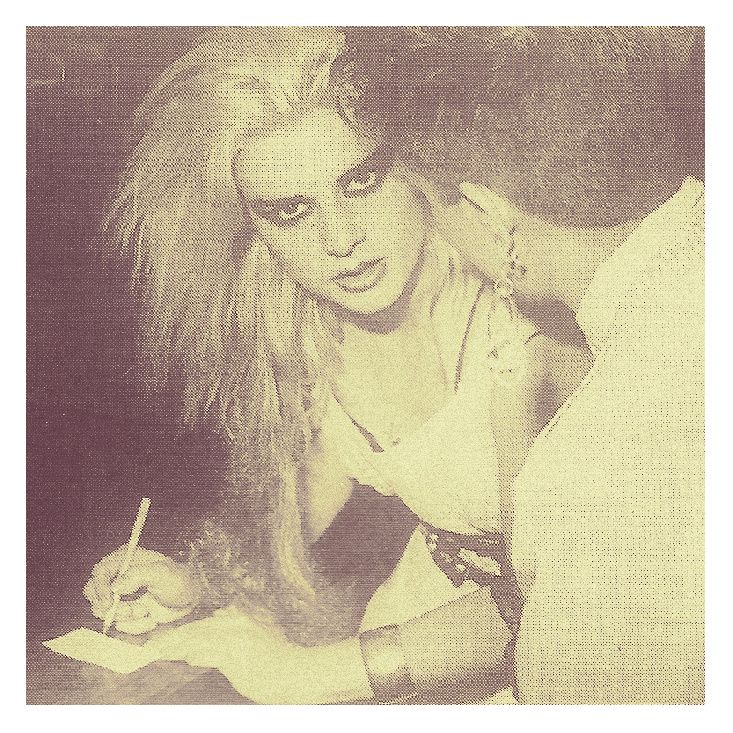
They also know how to shape and present it to their young, antennae-tuned-in audience. The band cut the cloth, Siouxsie is the seamstress who stitches it all together.
I think you can tell a lot about a band by what they don’t play. Tonight they leave aside ‘Happy House’, ‘Christine’, Hong Kong Garden’, ‘Israel’ and ‘Fireworks’ - hits one and all - but still deliver a never less than engrossing set well worthy of their headliner status.
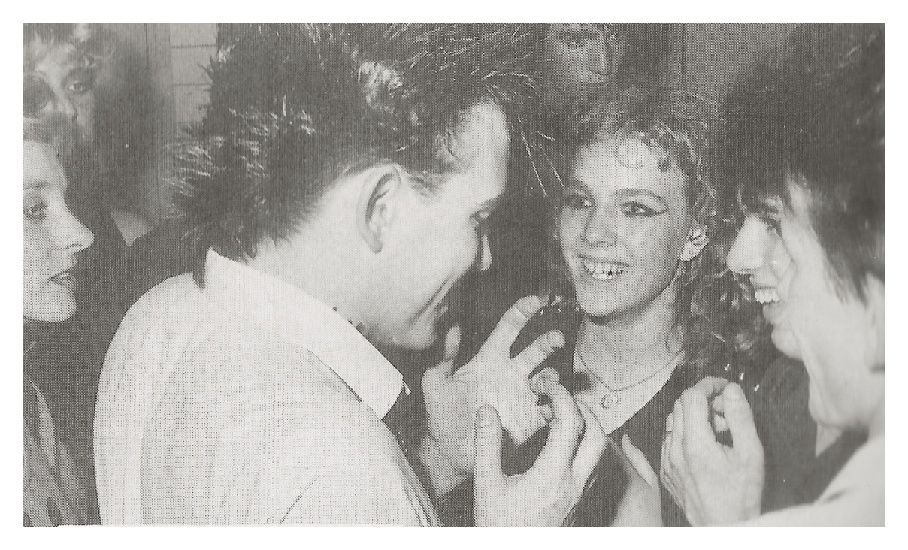
While Siouxsie and her cohorts appear to be confidently navigating their voyage, Howard Devoto, another of the class of ‘76, appears to be somewhat rudderless by comparison. The former Buzzcocks co-founder and Magazine post-punk trailblazer, now out on his own and promoting his first solo album in the main hall, sounds aimless and bland. Wearing a battered trilby, strumming an acoustic guitar, he looks and sounds like a stale Steve Harley of Cockney Rebel, without the cocky rebelliousness and, crucially, the memorable songs.
Some good news. Peter Hammill has finished his set and will soon be vacating his dressing room, enabling us to move in. There is a long, leatherette sofa, so I can have a lie-down. I don’t really know his music, but I know he used to be in a prog-rock group called Van Der Graff Generator. It falls to me to encourage him and his band to shuffle off into the Rotterdam night, so we can stretch out and relax before we play, which is still some three hours away. I need not be worried. “Gentlemen” Hammill smiles, “We were expecting you. I hope everything is to your satisfaction. Have a great gig.” What a classy guy.
I spread out on the sofa and close my eyes.
Ten minutes later. No, this isn’t going to work. There’s too much going on around me. Better grab another coffee and go out and find some entertainment. With three separate stages scattered around the building, it's easy to graze and sample different musical styles, from the scrawny pluck and saw of Fred Frith and Tom Cora’s Skeleton Crew to the athletic, industrial metal bashing of Antipodeans S.P.K. Eventually, I find that my backstage pass gives me access to the main stage itself and I find a quiet spot just off to the side to curl up and watch The Durutti Column. Mancunian contemporaries of Howard Devoto, guitarist Vini Reilly and percussionist Bruce Mitchell are performing as a duo tonight. For me, restless, tired, slightly anxious about playing in the wee small hours, The Durutti Column turn out to be the right band at the right time.
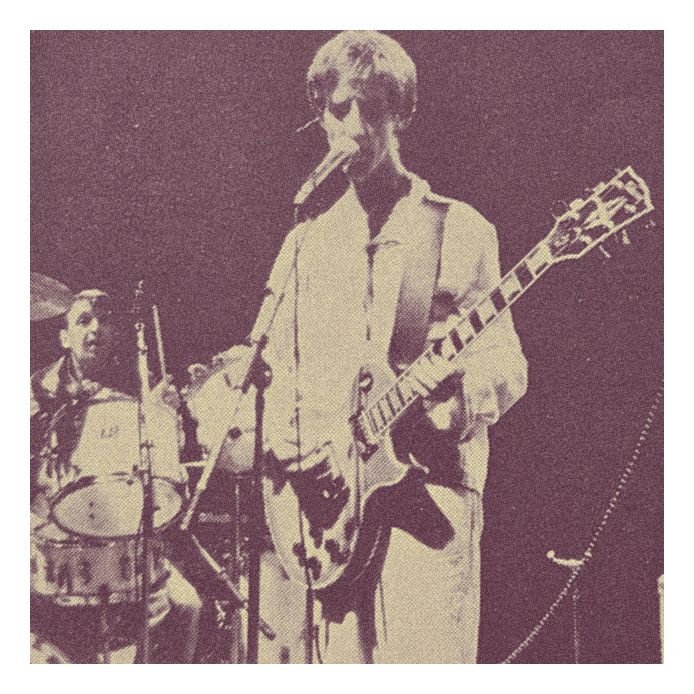
I know a little of their music from listening to John Peel. Reilly is something of a virtuoso of the electric guitar, but with none of the antic showmanship one usually associates with axe heroes from the world of rock. Rather he lets the chiming sound of his instrument, played through a variety of effects pedals, peal upwards to the sixty-foot ceiling. From where it ripples to the back of the Grote Zaal, exploiting the symphony orchestra-quality acoustics of the space. Behind him, and about ten feet from where I’m watching, Bruce Mitchell is mesmerising to observe behind his drum kit. His graceful, apparently effortless, pattering around his tom-toms seems to rise and fall with my now relaxed breathing. Sometimes Vini sings in a plaintive, modest voice while playing. In a band with no bass player, Bruce Mitchell has a lot to do in terms of bringing extra depth, dynamism and resonance. All of which he accomplishes while making it look like he’s painting with his drumsticks, flicking bright daubs of sound into the hall. The Durutti Column tonight are uniquely healing, restorative and inspirational.
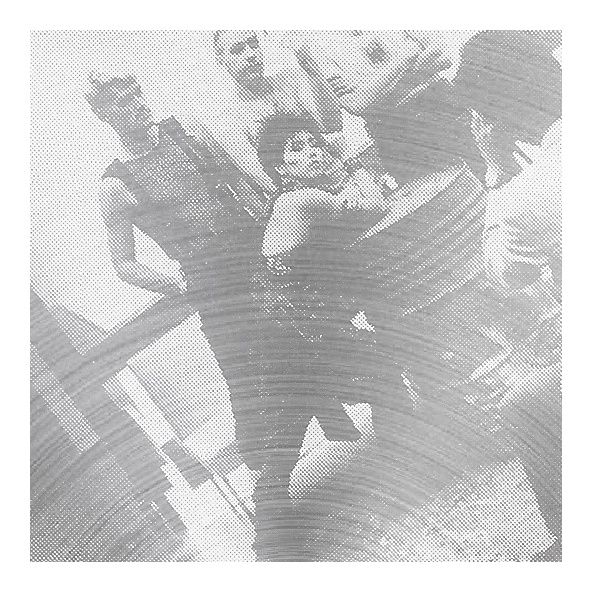
I get talking to Sinan Leong, the spiky Aphrodite who fronts S.P.K. She is an impossibly glamorous creature, born in China and raised in Australia, and I can’t quite believe she is happily chatting to me, a dull drummer from Sheffield. I’ve never met an Australian before, perhaps they are all this talkative? We’re sort of watching Jah Wobble, but I’m not so much concentrating on the monstrous bass sound of the ex-Public Image Ltd man as I’m wishing this offstage, shouting-in-her-ear conversation was instead some tête-à-tête exchange in quieter environs.
Thrilled by this exotic encounter, I’m determined that tonight The Box are really going to blow away Sinan and all the other hardy and intrepid music fans who are still here at three in the morning. Which is exactly what we do, the five-hundred capacity Feestzaal is busy and we go down a storm, with the added buzz that the show is being recorded for broadcast on Dutch radio. Wham bam thank you ‘dam.
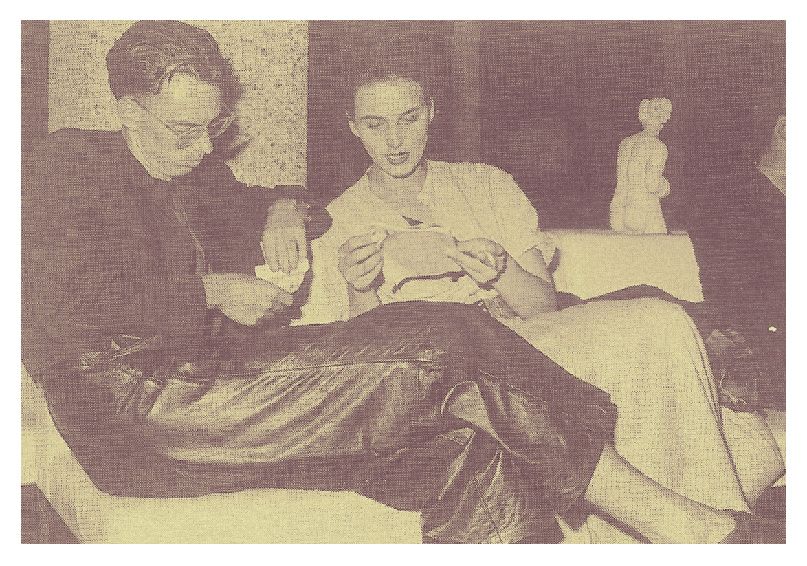
Still tingling, we arrive back at our hotel about an hour later to find Robert Smith and Severin sitting side-by-side on a big couch, holding court in the bar. There is no sign of my new Australian friend, but one of her fellow countrymen, Nick Cave, is sitting quietly on the floor, birdnest hair hiding a clutter of starlings, listening to the others waffle away. We grab a drink and join them, sitting alongside some road crew and a few devoted fans. Robert Smith is nothing like I imagined he would be. He’s funny, chatty, self-deprecating and comfortable in his own skin. His good friend Severin, four years his senior, is charming and a little quieter, smiling at Smith’s abstractions on everything from football to the death of punk rock.
Severin mentions the Banshees are en route to play in Tel Aviv for a fee of £5000. To me, just 22 years-old, this is a quite extraordinary amount of money. While the conversation ebbs and flows, I quietly, internally calculate that it totals more cash than all the gigs I’ve ever played with DVA and The Box, going back to 1979. Smith is a year older than me, Severin will be 28 later this month. I know successful musicians in Sheffield, the Cabs, the ABC guys, but somehow this encounter feels different. Nice hotels, dedicated attendants, easy international travel, adoring fans, money. These guys are rock stars.
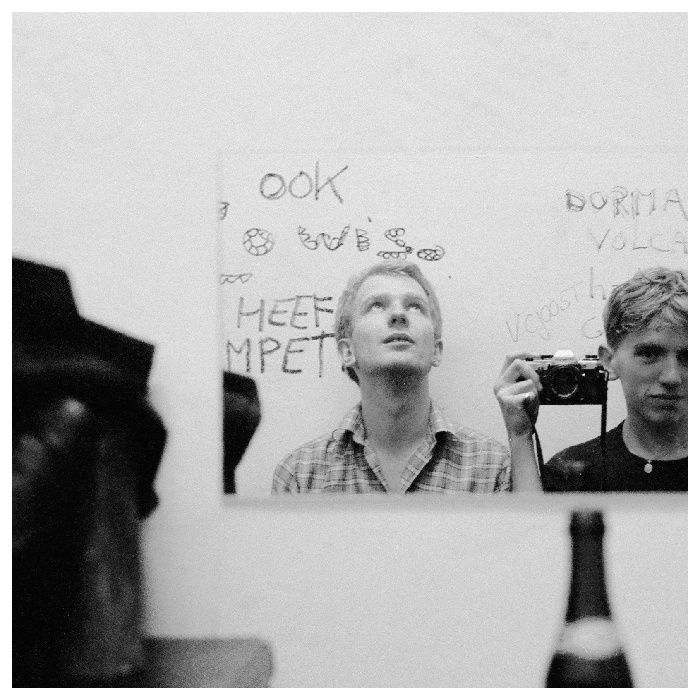
After a late check-out on Saturday, we head off Eastbound towards the city of Appeldorn, in the centre of The Netherlands, for tonight’s gig at the Gigant venue. We’re all in a good mood; the Dutch get The Box. However, any alternative music fan in Apeldoorn is, of course, still in Rotterdam for the second day of Pandora's Music Box at De Doelen. Showtime comes around and I reckon that between the band, the lovely and endlessly apologetic venue staff and a smattering of paying customers, we’d have just enough for a game of eleven-aside football in this good-sized room with space for five-hundred fans. The windmill turns. In less than 24 hours we’ve gone from triumph to travesty.
Pandora's Box photos scanned from Vinyl magazine, October 1983.
Thanks to my editor Nigel Floyd.
This blog is also available as a podcast - https://pods.to/ex8mxwr
Here is a playlist of the bands who played over the two days of the Pandora's Box festival:
